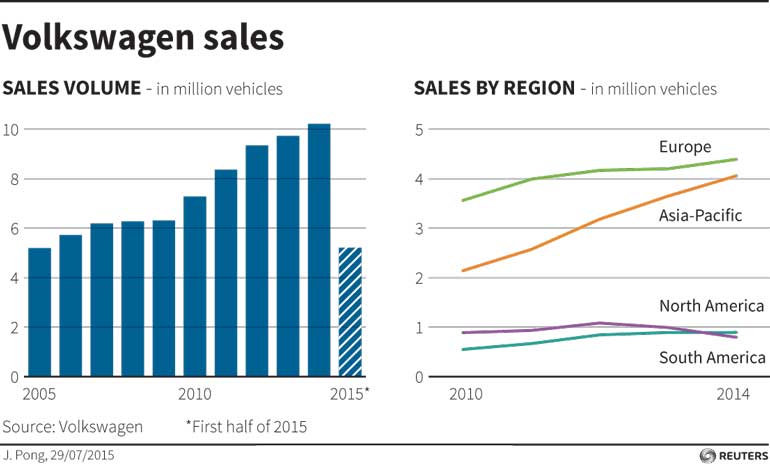Saturday Feb 28, 2026
Saturday Feb 28, 2026
Wednesday, 23 September 2015 00:00 - - {{hitsCtrl.values.hits}}

(Reuters) - Volkswagen will dismiss Chief Executive Martin Winterkorn, a German newspaper said on Tuesday, after the carmaker admitted to cheating U.S. vehicles emissions tests and said 11 million of its cars could be affected worldwide.
The Tagesspiegel newspaper, citing unidentified sources on Volkswagen’s supervisory board, said Winterkorn would be replaced by Matthias Mueller, the head of the carmaker’s Porsche sports car business.
A Volkswagen spokesman denied the report. A spokesman for Porsche said Mueller was attending a Volkswagen board meeting at its headquarters in Wolfsburg.
Shares in Europe’s biggest carmaker plunged almost 20 percent on Monday after it admitted using software that deceived U.S. regulators measuring toxic emissions in some of its diesel cars.
The stock tumbled another 20 percent to a four-year low on Tuesday after the company said it would set aside 6.5 billion euros ($7.3 billion) in its third-quarter accounts to help cover the costs of the biggest scandal in its 78-year-history, blowing a hole in analysts’ profit forecasts.
Volkswagen warned that sum could rise, adding diesel cars with so-called Type EA 189 engines built into about 11 million Volkswagen models worldwide had shown a “noticeable deviation” in emission levels between testing and road use.
Volkswagen sold 10.1 million cars in the whole of 2014.
The U.S. Environmental Protection Agency (EPA) said on Friday Volkswagen could face penalties of up to $18 billion for cheating emissions tests. The carmaker also faces lawsuits and damage to its reputation that could hit sales.
The crisis has sent shockwaves through Germany, with Chancellor Angela Merkel calling for “complete transparency” and newspapers putting the blame squarely on Winterkorn.
The 68-year-old was due to have his contract extended at a supervisory board meeting on Friday, but is now facing questions over why the scandal wasn’t averted.
Volkswagen, which for several years has been airing U.S. TV commercials lauding its “clean diesel” cars, was challenged by authorities as far back as 2014 over tests showing emissions exceeded California state and U.S. federal limits.